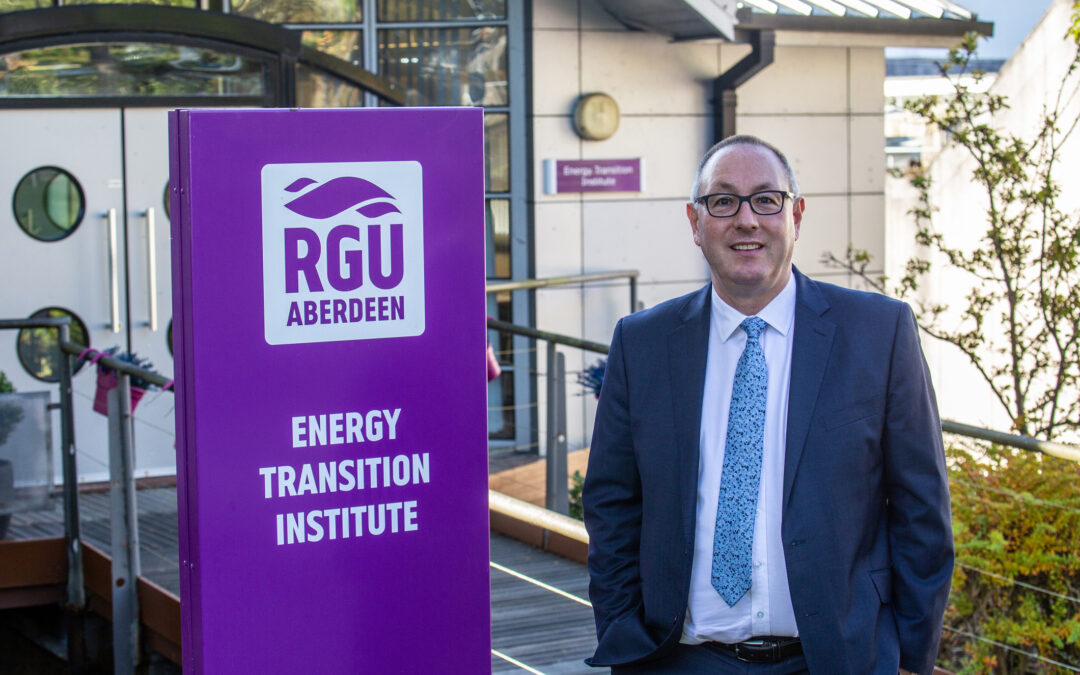2024 the year of a ‘Sea Change’ in the North Sea
The UK urgently needs coordinated and integrated transition plans to ensure a just and fair transition for all, writes Professor Paul de Leeuw, Director of Robert Gordon University’s Energy Transition Institute
The disturbing global weather conditions are putting the spotlight firmly on the tough decisions that need to be made to ensure we meet today’s energy demands, while delivering the transformational investment required to mitigate the worst impacts of climate change.
While we know we need to dramatically reduce the global dependency on fossil fuels, how is it that we find ourselves in a position where during 2023, greenhouse gas emissions and demand for fossil fuels reached a new all-time high?
Although this is a truly global challenge, it is worth highlighting that close to 50% of global greenhouse gas emissions come from just three countries – China, USA and India, whilst around 70% of the world’s emissions are generated by only 10 countries (the top three plus Russia, Japan, Iran, Saudi Arabia, Germany, Indonesia and South Korea).
As the first generation to experience the impact of climate change and the last generation who can do something about it, we all have to play our part. But let’s also be clear that real change will only come about by the largest emitters demonstrating true climate leadership.
Encouraging signs at COP28
The UK represents circa 1% of the world population and around 1% of the global emissions and is not one of the top 10 emitters in the world. However, it does have a key role to play as a G7 country and its words and deeds do matter.
Therefore, the actions the UK is taking to change its energy system are important, and particularly of course in relation to the transitioning North Sea oil and gas sector.
The UK’s offshore energy industry has already reduced its emission by almost 25% (compared to the 2018 baseline) and has committed to reduce emissions by 50% by 2030 and to be net zero by 2050. The industry is currently removing more oil and gas platforms than it installs and is decommissioning more wells than it is drilling.
Overall, UK oil and gas production over the remainder of this decade is forecast to decline by up to 50%.
North Sea can remain ‘energy powerhouse’
The North Sea has been an energy powerhouse for over 50 years and now has the opportunity to continue to be so if it can accelerate its transition to become a new, multi-energy basin.
The prize for getting this right will secure a greener future, create new economic benefits and yield new, high-quality jobs across the UK.
The recent Robert Gordon University’s Energy Transition Institute report – Powering up the Workforce – highlights that delivering the UK and Scotland’s energy ambitions will see the UK’s offshore energy workforce numbers increase from around 150,000 today to close to 225,000 by 2030.
However, the report reinforces that if the ambitions are missed, it is unlikely that the UK will meet its net zero targets and that the number of industry jobs could fall to as low as 130,000. We are currently behind the curve in terms of driving investment and setting up the infrastructure and business models that will be key to the UK hitting all its crucial net zero targets, while generating new businesses and jobs. We have seven years left to deliver our 2030 targets and we need a real sense of urgency to accelerate and deliver the annual emission reductions.
What we urgently need are coordinated and integrated transition plans, which will ensure a just and fair transition for all. It is critical that we use 2024 to raise our game and all play our part to set this up for success.

